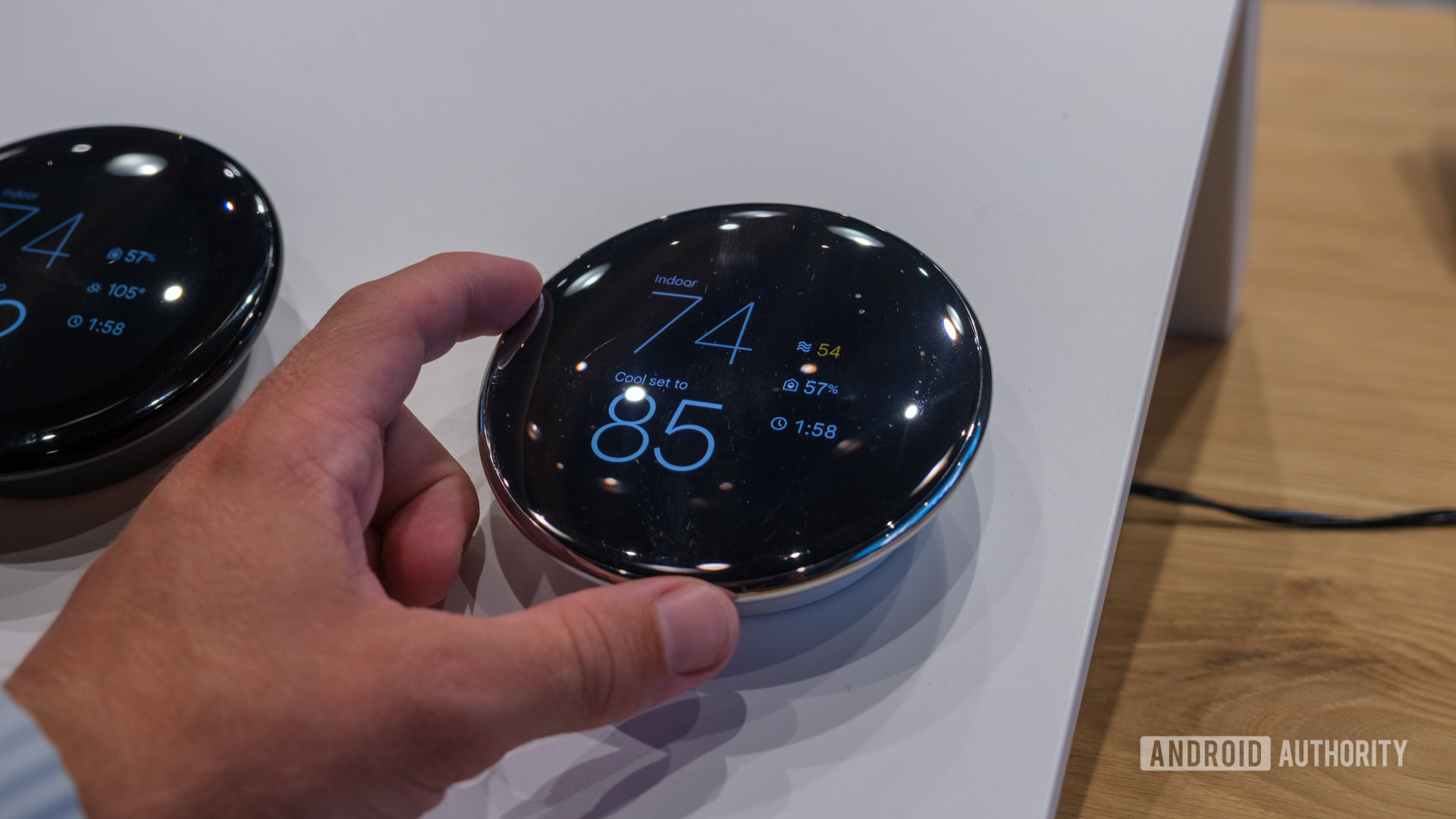Affiliate links on Android Authority may earn us a commission. Learn more.
Nest Learning Thermostat users frustrated by dim display, fix on the way

- Owners of the fourth-generation Nest Learning Thermostat are complaining about the brightness of the display.
- Users have noticed that the thermostat becomes very dim when the room is dark.
- The brightness can’t be changed by the user, unlike with earlier models.
Earlier this month, Google launched the Nest Learning Thermostat (4th gen). The new smart home product has now landed in the hands of early buyers. While the device improves on a number of factors, there’s one area that owners aren’t too happy with — the display brightness.
The folks over at 9to5Google have noticed a common complaint among Amazon shoppers about the new Nest Thermostat. It appears many of the negative reviews on Amazon point out that the display is far too dim when the room is dark. So it sounds as if you’ll have a hard time seeing anything when nighttime rolls around. At the same time, it appears the display may also be a bit too dim when the lights are on.
The problem is linked to the device’s auto-brightness feature which changes the display’s brightness depending on how bright the surrounding area is. Unlike in previous generations, there is no way for users to adjust the brightness as everything is done automatically.
According to the outlet, Google says that a fix is on the way in the form of a brightness setting. This manual control is reportedly coming soon, but it’s unclear exactly how soon.
Additionally, users also seem to be upset about the new Dynamic Farsight feature. Dynamic Farsight is meant to show practical information such as the time, the weather, or the temperature in a format that’s large enough to read from across the room. However, it appears it has disabled the ability to see if the system is running at a glance.
Outside of these two issues, it seems like everything else about the thermostat is mostly fine. We have contacted Google to ask about the timeline for the fix. This article will be updated when new information is available.